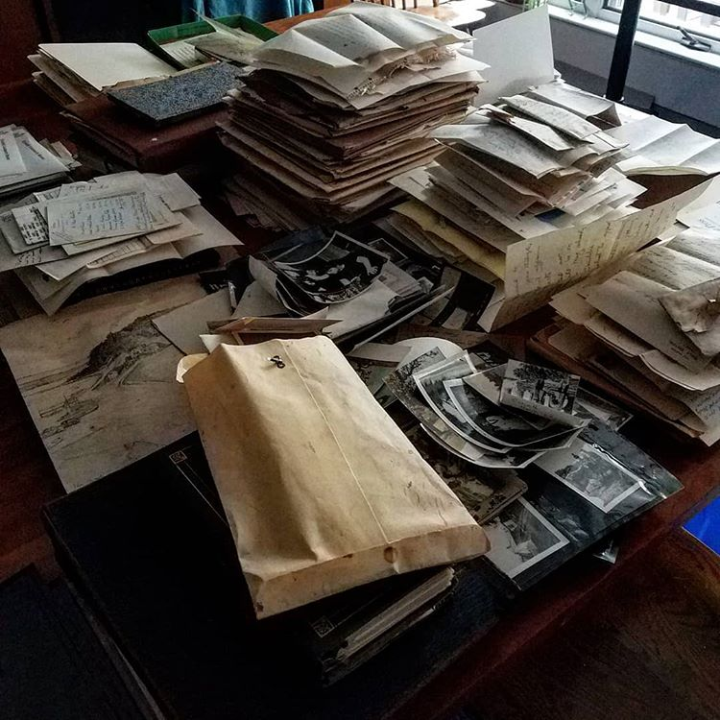
I was away from the archives for the summer. Like many of us, I literally dropped things where I held them in March and went home.
Time in the archives is akin to the pace of history, or the time it takes for a writer to go out of fashion and then to make a comeback. Something closer to geologic time as opposed to the daily grind of timesheets, work flow, to-do lists, and the rush of the work day.
When I returned to the archives at the end of August, nothing had moved in months. Everything lay in piles on my processing table exactly as I left it. This was like stepping into a museum. Or a graveyard. The lone exception to this frozen scene was the dust that had fallen on the tops of all my piles as if even it had gotten too tired of being suspended in the air and had to come down for a rest. Did I expect it to be any different? I think I’d hopedone of the ghosts in the archives (Josephine Peary? May Sarton?) might’ve come out and messed with one of my piles. I would’ve welcomed the attention, because it would’ve been a sign that time had moved forward. And to be honest, time’s seeming suspension was a little unnerving.
During a summer without archives management software, without processing plans, without research requests, without photo sleeves, without scanners, I was left to think about what was left: the women whose lives we care for. And I was surprised how much I thought about them, how they stayed in my head like distant branches of a family tree. I found my mind wandering to the hotel bill from the late 19th century for the Jewett family, and wondering exactly how much it was; I found myself wanting to see the original photograph of an eight-year-old Elizabeth Coatsworth grinning with her cat in her arms.
Now as I’m thankfully back in the archives and once again confronted with daily tasks and processing plans and the occasional overwhelm at how long it takes to actually do anything the right way in the archives, I try to think back to what I thought about over the summer: I don’t just deal with ordering papers and photos, and typing that stuff into a software program. I am caring for someone’s life; they have trusted me to do this and it’s my responsibility to do it as best I can.
I am completely alone in the archives these days all day long. Nothing but the whisper roar of the ventilation fan to keep me company. Sometimes as I sort and slip photos into sleeves, I find myself pausing to look at the author in the photo, and thinking it would be nice to visit her for tea. Then I’m more than a little shocked when I realize she died almost forty years ago. Such is the way of time in the archives. It moves so slowly sometimes you don’t even know it’s moving.
Then before you know and without warning, you’re gone. And the archives go on.

